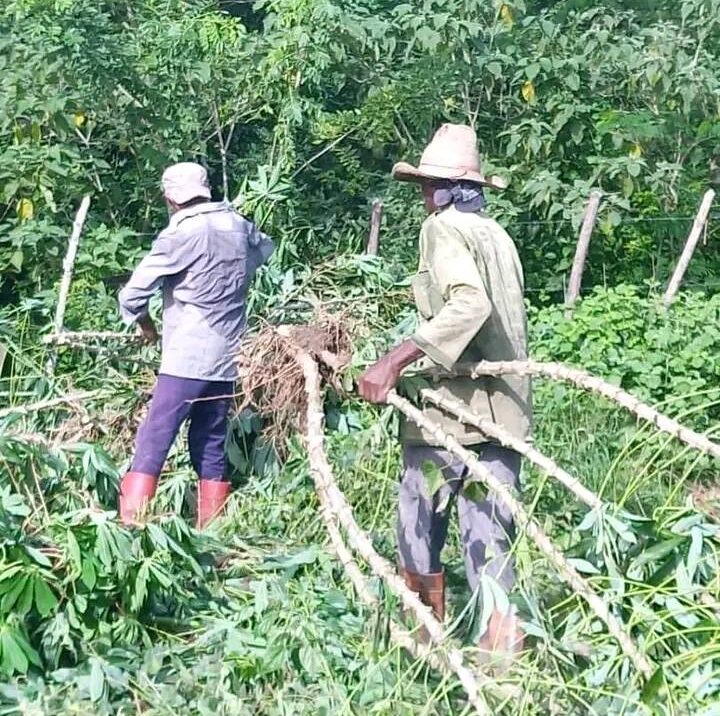 Guantánamo – The recent passage of Hurricane Melissa left a devastating mark on the Guantánamo region, where approximately 23,600 hectares of crops were severely damaged. Among the most affected are banana plantations, with the loss of nearly 6,900 hectares, in addition to 5,000 hectares of cassava and similar areas of coffee plantations that were damaged.
Guantánamo – The recent passage of Hurricane Melissa left a devastating mark on the Guantánamo region, where approximately 23,600 hectares of crops were severely damaged. Among the most affected are banana plantations, with the loss of nearly 6,900 hectares, in addition to 5,000 hectares of cassava and similar areas of coffee plantations that were damaged.
These figures not only represent a decrease in cultivated land, but also imply a considerable drop in the yields of food products available to the local population, according to a report published by the Granma digital newspaper.
However, despite the adversity, a renewed dynamic is emerging in Guantánamo: thanks to the flooding caused by the cyclone, the region faces an opportunity to recover and expand its agricultural production. Before Melissa’s devastation, the projected planting area was around 7,000 hectares during November and December. Now, that projection has increased to more than 13,000 hectares, driven by the urgent need to recover food production.
The Provincial Defense Council, headed by Yoel Pérez García, emphasizes the urgency of this task, fostering planting-centered approach among farmers. This call to action invigorates a collective effort to maximize agricultural production in the short term. Current conditions have allowed to be on the roll that could benefit both traditional agriculture and organic farms and technologically advanced plots.
This month, Guantánamo has over 5,320 hectares of crops, expected to yield around 8,000 tons of agricultural products. A significant increase in production is projected for December, reaching approximately 13,300 tons, highlighting the resilience of local agriculture, even in the face of natural disasters.
With the commitment and determination of its farmers, Guantánamo is moving toward a future of planting and hope, using adversity as an engine for growth, ready to recover and surpass pre-Cyclone Melissa production levels. This replanting cycle not only seeks to restore normalcy but also to contribute to the food security of the entire region.
Text prepared with information from Granma